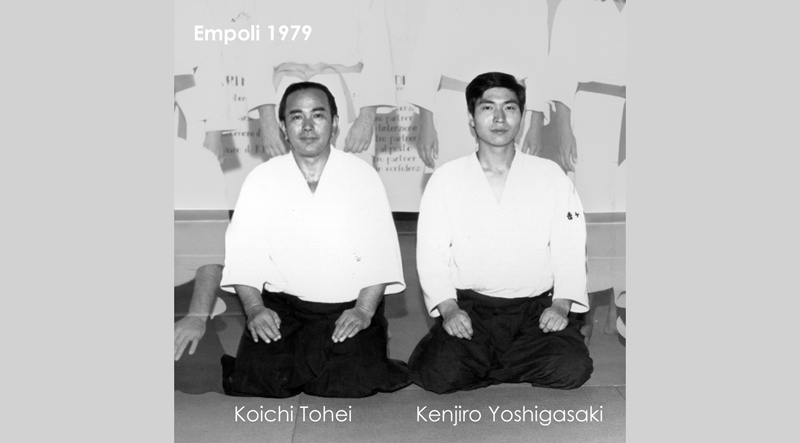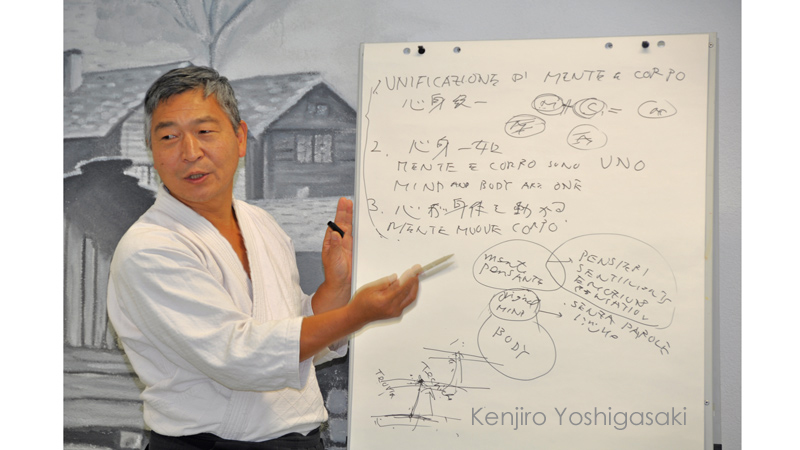Jōdori tsukikaeshi
in the exam for 2nd kyu
tsukikaeshi (突き返し, counterthrust)
2020-03-30
in the exam for 2nd kyu
tsukikaeshi (突き返し, counterthrust)
in the exam for 2nd kyu
jōdori (杖取り, take the stick, disarm)

Kenjiro Yoshigasaki (1951 - 12.02.2021) was born in Kagoshima, Japan. He started yoga at the age of 10 and aikido at the age of 17 under Koichi Tohei. In 1973 he became an aikido teacher at the Ki Society under Tohei Sensei. He accompanied Tohei Sensei on many of his teaching trips abroad.
In 1977, Yoshigasaki Sensei moved to Europe as the main teacher of the Ki Society and contributed to the development and spread of Ki Aikido. In 2003 he founded the organization Ki No Kenkyukai Internationale to independently develop aikido concepts and maintain the path of aiki. After his death this organization broke the connection to the previously affiliated dojos at the end of december 2021.

Aikido is a "way" (Dō, 道). This way should remain walkable through and for practise. The person who maintains the way is called Dōshu.
There are two different meanings of dōshu in Japanese. The first (written 道主) means "master of the way", while the second (written 道守) means "guardian, keeper of the way" (in the sense of keeping the way passable). The difference is, that there can only be one "Master of the Way" according to the first meaning, while there can be many "Guardians, keepers of the Way" with the second meaning.
The teacher responsible for an aikido organization should be called dōshu (道守) and should be understood as the "guardian of the way", but in reality many aikido organizations do not have dōshu. This is because most Japanese teachers follow someone else's teachings, especially Morihei Ueshiba's, even though he is no longer alive. There are also teachers who do not follow a particular teacher, but rather established philosophies. They are not "keepers" either. That is why there are not many dōshu in the world of aikido.
A teacher is "dōshu (道守)" only if he teaches completely independently of a philosophy or other teachers, including teachers who have already died.
based on a text by Yoshigasaki Sensei from 2004